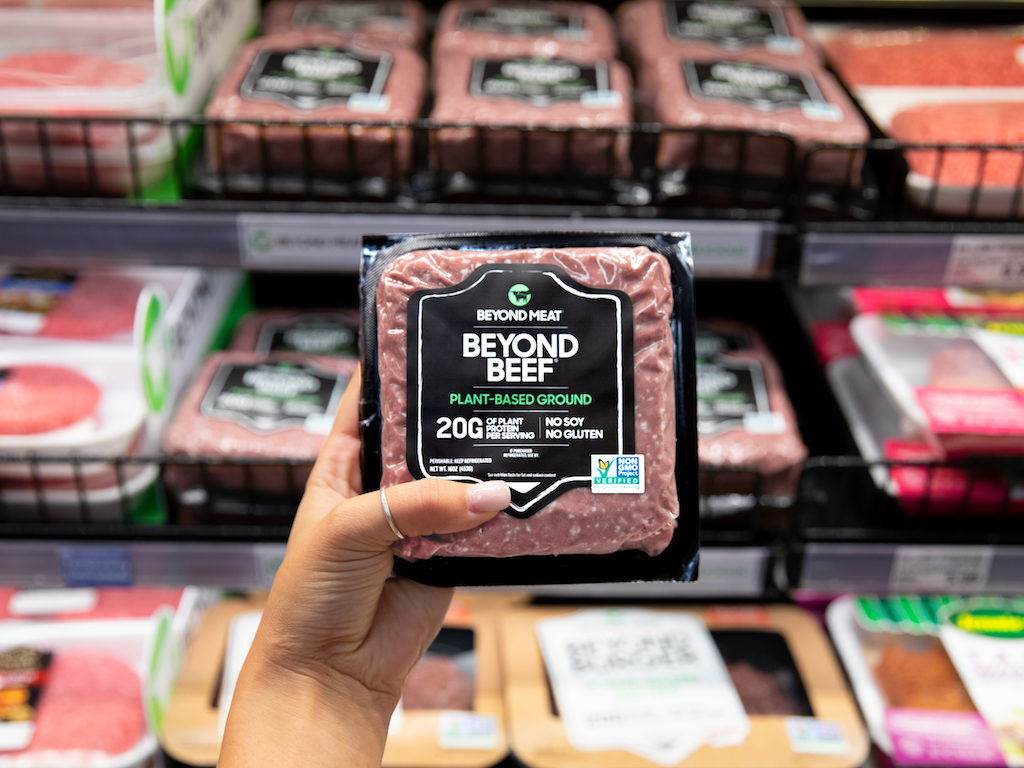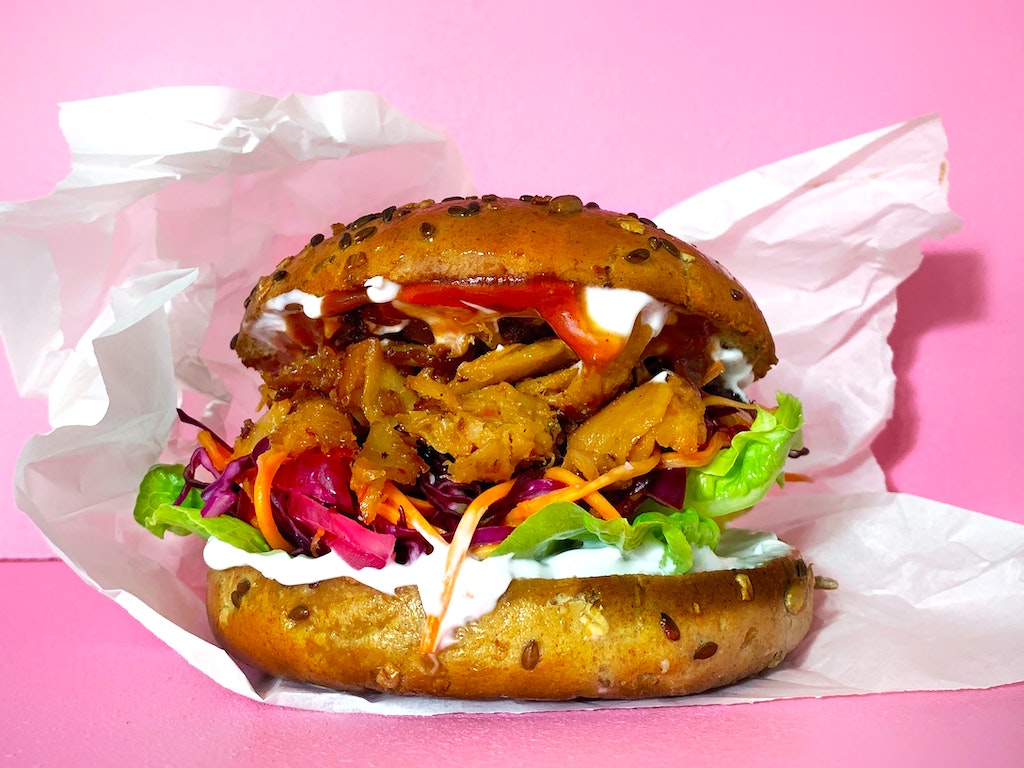5 Mins Read
Startups working on plant-based substitutes for animal products are now raking in capital as investor sentiment for the conventional meat industry goes awry. The coronavirus pandemic has exposed the vulnerability of industrial meat, from increasing numbers of outbreaks in meat-processing plants and empty supplies of beef and pork in supermarkets to the public health dangers of industrial meat farming.
This meat crisis has become a big opportunity for plant-based protein companies that have developed healthier, safer and more environmentally friendly alternatives to traditional animal products. Consumers, now more concerned about food safety than ever before, are now increasingly in favour of plant-based proteins. Investors too are beginning to have higher hopes for the sector, with more money pouring into food techs amidst the coronavirus crisis.
Here are some statistics that have emerged in just the past few weeks.
1. Beyond Meat sees shares jump 49% last month
It’s been one year since the leading Silicon Valley vegan food tech went public, and while it has been a rollercoaster with ups and downs along the way after it broke the record for the best performing IPO in 2019, shares of BYND have stayed afloat. In the last month, BYND experienced a healthy 49% jump that analysts attribute to rising widespread consumer interest in plant-based foods, meat supply shocks as a result of the Covid-19 crisis and multiple high-profile partnerships, particularly its groundbreaking launch across all 3,300 Starbucks locations in China.
Watch: Q&A David Yeung on bringing Beyond Meat to Asia & the world-changing IPO
2. Vegan meat sales have doubled
In the United States, sales of vegan meat jumped by a staggering 280% in the second week of March compared to the same period last year, as the country became the epicenter of the coronavirus pandemic. According to consumer data group Nielsen, this has lasted throughout April, with sales continuing to jump 200% in mid-month compared to the same period last year.

3. Big meat wants in on the vegan market
The growth of plant-based meat alternatives has been steady over the past few years, but the pronounced jump in consumer interest in the last months and weeks – especially now as meat processing plants face forced closures – are prompting big meat corporations to rethink their business strategy. Huge companies such as Tyson, Smithfield and Hormel Foods had already been investing in plant-based alternatives prior to the pandemic, but will be aggressively rolling out more vegan options in a bid to diversify their business model and weather external shocks like the coronavirus. Tyson’s own brand of vegan meat is slated to launch in the summer this year, for example.
4. FCMG brands are pouring investment into vegan foods too
It isn’t just big meat companies looking to capitalise on the moment. In China, where the pandemic was first detected, the food supply has been hit by not just the coronavirus but a number of livestock diseases from African swine fever that wiped out its hog supply to the resurgence of avian flu and most lately, the Div1 shrimp virus. Food security is therefore top of mind amongst Chinese authorities and experts, and huge multinational corporations plan to cash in on it. PepsiCo, for instance, recently acquired Bai Cao Flavour for US$705 million, a local snack company that launched meat-free sausages made using soybeans and konjac.

5. Asian VCs are actually ramping up investment into plant-based food techs
Hong Kong-based early stage investment fund Vectr Ventures led the US$4.6 million seed funding round for San Diego-based Plantible Foods, which closed in late March this year. According to the company, Asia’s existing issues of a ballooning population, urbanisation and food insecurity have all been exacerbated by the pandemic, and startups that focus on plant-based foods – such as Plantible’s duckweed-based vegan protein – will become a core part of the solution to feed the continent sustainably.
Meanwhile, in a recent interview with Bloomberg Green, Matilda Ho, the founder and managing director of Shanghai-based venture capital firm Bits x Bites, said that its activities haven’t slowed due to the pandemic. Instead, the “recent uncertainty might just be a pivotal moment for the still nascent food tech sector in China.”

China-focused impact investor Dao Foods and early stage food tech venture firm New Crop Capital recently led the angel funding round for Starfield, an emerging alternative meat company that operates its own R&D and manufacturing facility. The company, which has made meatless meat out of seaweed protein, has shown promising results already, launching its product across hundreds of major restaurant chains in China as the country emerges from the coronavirus pandemic.
Most recently, Singapore’s plant-based protein company Growthwell raked in US$8 million from Singapore’s sovereign fund Temasek, alongside a number of institutional investors. The company has acquired a stake in Israeli food tech ChickP to develop a new chickpea protein isolate for Asian-specific vegan products, a move that Growthwell chief Justin Chou believes is a “timely solution to tackle the food security issue” highlighted by the pandemic.
And shortly after Beyond Meat celebrated its one-year anniversary of its IPO, its rival Impossible Foods, the maker of the eponymous “bleeding” burger patty, has been in talks with investors about raising fresh funds after receiving excess demand for a US$500 million in March, according recent reports.
Lead image courtesy of Unsplash / Like Meat.




